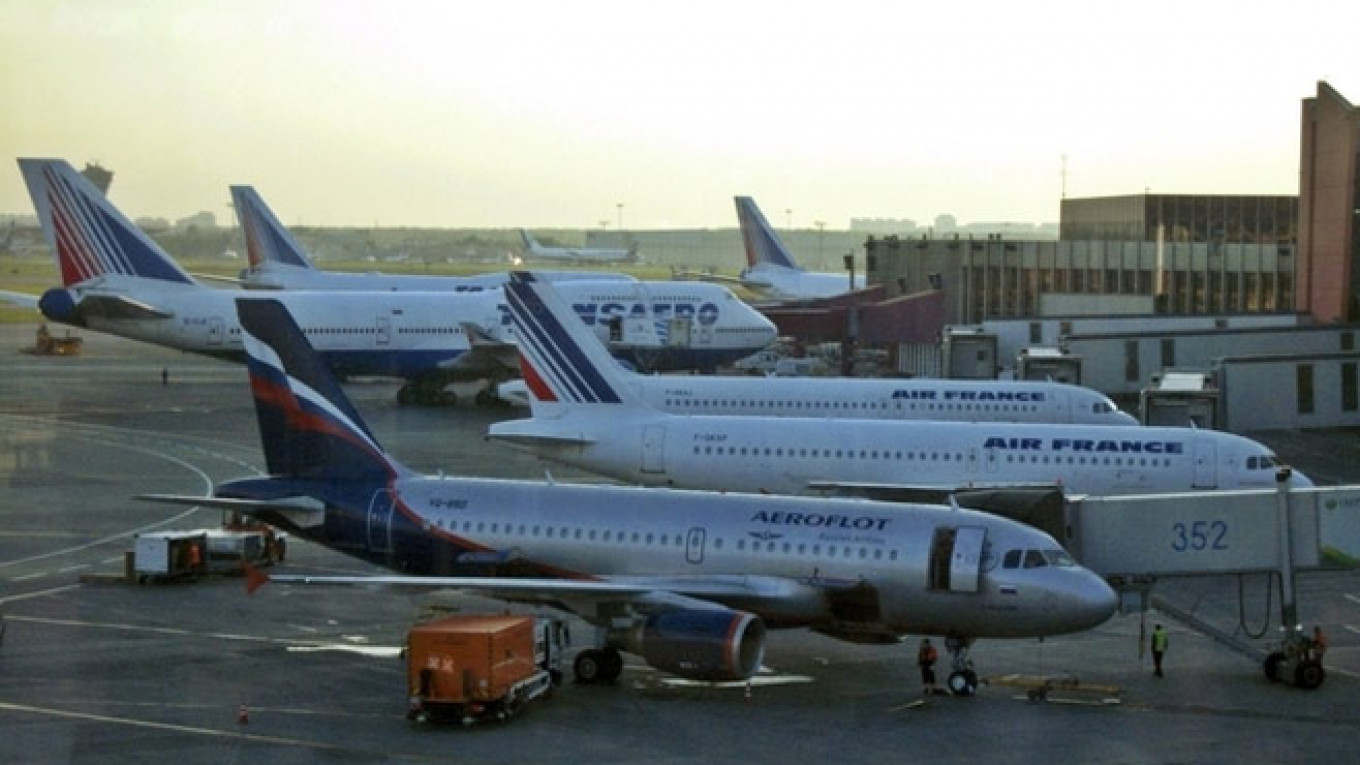Aeroflot's upcoming purchase and reorganization of Transaero Airlines follows the traditional Russian quasi-state-controlled business model.
The Aeroflot board of directors recently met to consider purchasing a 75 percent plus one share of Transaero Airlines. Deputy Prime Minister Igor Shuvalov had already approved the deal at an earlier meeting.
Transaero is in a difficult situation with falling revenues and banks refusing to restructure its more than $1 billion in debt, among other problems.
The Russian government considers Transaero "too big to fail," and with state loan guarantees unable to resolve the company's problems, Moscow has decided to save the ailing air giant. How?
Aeroflot, the 51 percent state-owned market leader, will assimilate Transaero, Russia's second-largest airline in terms of passenger volume. Aeroflot will also get Transaero's unsuccessful business model, its aging fleet of aircraft and 12,000 employees along with restructured loans, probable new state guarantees and other assistance.
It might also gain the ability to strongly influence airfare prices in the future.
At the same time, its low-cost subsidiary airline, Pobeda, will be rid of its even lower-priced competitor, Transaero, that was dumping airfares during the final stages of the company's decline.
Transaero owners and managers will apparently not only save face with the deal, but will walk away holding 25 percent minus one share of the company and likely other incentives as well. A possible bankruptcy would have been a far worse option.
The state will provide short-term stability for Transaero employees as well as for passengers who have already purchased tickets — a number the company's management has done its best to increase in recent months.
The company's debt exceeds its revenue from advance ticket sales, but for the Russian government the value of stability outweighs the burden of debt.
Voters probably had doubts in previous years when the state chose to bail out unsuccessful but socially important businesses such as Lanta Tour and a handful of banks, but the blame for the current situation lies squarely with the authorities, whom taxpayers entrusted with managing the country's affairs.
Transaero and other Russian airlines only ran into trouble as a result of the devaluation of the ruble, the decline in tourism abroad, Western sanctions and the denial of access to Western financial markets — all of which are the direct results of the deliberate actions of the Russian authorities.
Perhaps official corruption or abuse of power played some role in the situation, but even those problems should find resolution through proper government oversight.
Under ordinary market conditions, an international strategic investor could have stepped in to save Transaero.
This would have had the obvious advantage of supporting competition in the domestic market.
However, in Russia's current crisis, not even an Arab or Chinese investor could save Transaero from its financial crash.
Andrei Sinitsyn is a correspondent and op-ed contributor for Vedomosti. This comment originally appeared in Vedomosti.
A Message from The Moscow Times:
Dear readers,
We are facing unprecedented challenges. Russia's Prosecutor General's Office has designated The Moscow Times as an "undesirable" organization, criminalizing our work and putting our staff at risk of prosecution. This follows our earlier unjust labeling as a "foreign agent."
These actions are direct attempts to silence independent journalism in Russia. The authorities claim our work "discredits the decisions of the Russian leadership." We see things differently: we strive to provide accurate, unbiased reporting on Russia.
We, the journalists of The Moscow Times, refuse to be silenced. But to continue our work, we need your help.
Your support, no matter how small, makes a world of difference. If you can, please support us monthly starting from just $2. It's quick to set up, and every contribution makes a significant impact.
By supporting The Moscow Times, you're defending open, independent journalism in the face of repression. Thank you for standing with us.
Remind me later.






